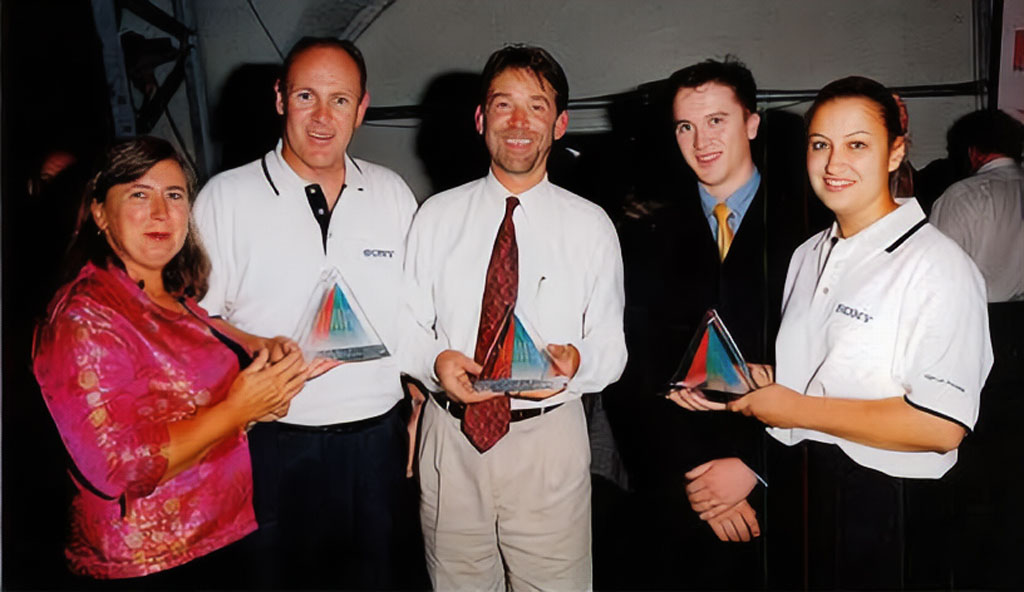THE GAFFA TAPES
16 Dec 2024
Keeping the wolves at bay – The Micromanagement Disease

Subscribe to CX E-News
Snippets from the archives of a bygone era
Some are born managers, some achieve management skills, and others have management thrust upon them. I never aspired to manage anything other than my bank account and personal affairs, but I ended up managing bands, venues, and, towards the end of the millennium, all the audiovisual presentations at Sydney’s Macquarie Bank. The bank was a great gig, and I had a great crew that ran the AV operations like a well-oiled machine until a micromanager threw a spanner into the works.
Years earlier, when I waltzed into the Philippines as a sound and lighting installer in 1983, the position quickly morphed into band management. I booked and managed all the bands for a single nightclub, but the bands were always under contract to the club. After writing and recording songs for a couple of the bands, I wanted to give them exposure in other venues, but the club’s American owner, fearing he would lose the bands, bitterly objected, and as he sank lower into his alcoholism, I began to negotiate my own management contracts. This didn’t go down well, and after some heated disputes, I moved on, signing several bands for other venues.
I soon realised that after installing the audio and lighting and booking the bands for venues, my position became very fragile because the venue partners and investors didn’t want to pay my ongoing fees. So, every band that I booked for the next three years was under a management contract to me, which was signed in the presence of an attorney.
My management style was largely geared to my expectations of the bands’ performances in clubs that were patronised by GIs from the neighbouring US military base. I was considered to be somewhat controlling with repertoire, appearance, and professionalism from the outset, but as long as the bands retained their popularity and professionalism, I didn’t interfere.
My first Australian management venture was back home in Sydney in 1987 at the Local Inn, West Ryde, where, as the venue manager, I installed the sound and lighting and booked the bands and the DJs. Prior to my arrival at the venue, which was devoid of patrons, they had been booking virtual garage bands, and to quickly rectify this, I engaged a booking agency. I did ask for management control of all aspects of the venue, but the owners stopped short of giving me control over the bar staff, who only referred to me as ‘the lighting guy’. After the venue became successful, I was offered a reduced management fee, and I moved on.
My engagement at Macquarie Bank, Sydney, began some 12 years later when I was employed by Neil Langford, the founder of Spaceage Communications, to train the bank staff in the use of the high-tech audiovisual equipment that his company was in the process of installing at the venue. I was embedded into the installation crew and put on tools for the first two weeks, where I learnt invaluable skills from technical superstars.
Spaceage Communications went on to win the ENTECH 2000 Award for Best Audio Visual Integration Firm.

Macquarie Bank already had an AV manager, Julie, whose previous position was as an assistant at an audiovisual company that pioneered video conferencing; those were the days when you had to type hashtags to get a connection via Telstra ISDN (Integrated Services Digital Network) lines. Julie dressed immaculately in an array of trendy business suits; she had a charming demeanour and a cheeky sense of humour, which was a bit too indelicate for the egos of the financial wolves she had to deal with in the meeting rooms. And when they realised she lacked technical ability, the wolves turned on her.
Although I was initially employed to train the bank staff to use the AV equipment, my role quickly changed to facilitating the meetings and ensuring there were no technical glitches. If technical problems occurred, Macquarie Bank’s Managing Director/CEO, Alan Moss, whose salary was widely reported as being above $30 million per annum, would sometimes approach me directly and ask for details. Thankfully, these were always problems at the other end of the worldwide video conferencing hook-ups, and Alan Moss was always polite in accepting my no- nonsense explanations.

After some weeks, Neil Langford took me to lunch, where he announced that Macquarie Bank wanted me as their audiovisual manager. I remember him commenting at the time that I didn’t appear to be overly excited. Meanwhile, Julie, who was supposed to take over after the training period, was on a downhill slide and in the firing line. She had approached me with tears in her eyes, saying, “Tell me what I’m doing wrong!” It was a very short conversation wherein I praised her for the way she meticulously handled all the booking requests for video conferences and presentations, but I advised her not to get involved in the technical side of things. She agreed, but I had a difficult time calling off the wolves that were baying for blood. Ultimately, Julie became the event coordinator, and since she did such a great job, a contingent of people still thought she was the AV manager.
Requests for technical presentations and audiovisual conferences started to mount, and we had to request additional staff from Spaceage Communications to cope. All that was asked of technical staff was to be willing to learn the technicalities of the position, to be meticulous about being in their scheduled meeting rooms on time, and to exercise a professional attitude. Surprisingly, not all fledgling technical staff could comply with these simple instructions. There weren’t any other rules; if crew members wanted to have lunch in a city bar, it was imperative that they kept their mobile phones on, had reliable wristwatches, and had a good supply of mints. Most of our crew were excellent at their jobs and didn’t need to be constantly monitored or pressured; those who didn’t want to comply were replaced.
We had to work seamlessly with the reception department that took the initial bookings and also the catering department that provided meals and beverages in the various meeting rooms. However, because these departments often feuded with each other, an overall manager was brought in to oversee the departments, including AV. The new general manager brought with her a disastrous micromanagement style, which she dispensed with wrecking ball diplomacy. Micromanagement is where managers want absolute reign over all aspects and decision- making of personnel and departments under their control, often exercised to an extreme and unhealthy degree, and I have never been successful at keeping these wolves at bay.
Every morning before sunrise, I would leave my western suburbs home for the journey into the city, often taking problem-solving telephone calls along the way. I’d arrive at the bank in time to iron out various issues in the multi-room facility and then set up the large auditorium for the 7:30 am start. This was to hook up the worldwide video conferences for stock market updates to major cities in Australia and around the world, including New York, where it was 3:30 pm, 30 minutes from closing time at the NYSE (New York Stock Exchange, Wall Street). I would arrive home in the late evening after dark, but despite the long hours and busy schedule, the new micromanager insisted on a paper trail of endless written reports and constant updates about events and technicalities, which she had absolutely no concept of. There were constant acrimonious criticisms of our non-completion of ridiculous directions, along with overly complicated instructions interwoven into an amalgam of gibberish and corporate jargon. She also embarked upon a bizarre save-the-trees campaign, where she’d fill the printer with the reverse side of previously printed documents, which made our audiovisual documentation look like a dog’s breakfast.
Every baby boomer knows where they were when JFK was shot. Similarly, I remember walking across Sydney’s Domain in the year 2000 when I was hit with the cheapest shot of my professional life, which was delivered via a phone call from the new micromanager. She insultingly told me that she didn’t consider me a manager at all. This, she claimed, was because I hadn’t filled out her micromanagement twaddle and because I opposed her continual interference in technical matters she didn’t understand. Her aberrations ultimately caused most of our internal clients to book their meeting rooms at outside venues, and my reluctance to comply with her idiocy resulted in my employer having to relocate me to a new venue. Julie hung on for a time but ultimately resigned to form her own audiovisual company, recruiting me as her operations manager.
Micromanagement was the behemoth that would again plague me in my role as editor of BEN (Broadcast Engineering News), which ended abruptly in 2005 when I left to join CX. Although I had successfully edited the magazine since 2003, a newly appointed micromanager insisted on the same mundane reporting and senseless interference that I had encountered in the past.
In my novel, Neon Province, there is a corporate manager, Tina Fagan, whom my protagonist loathes: “He despised how she submerged her ineptitude in a sea of corporate jargon, the excesses of which she expressed at meetings that failed to accomplish any worthwhile goals.” Of course, any resemblance to real-life figures or characters is purely coincidental.
Subscribe
Published monthly since 1991, our famous AV industry magazine is free for download or pay for print. Subscribers also receive CX News, our free weekly email with the latest industry news and jobs.






